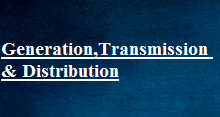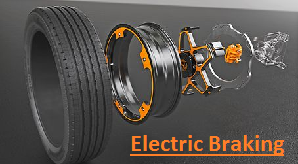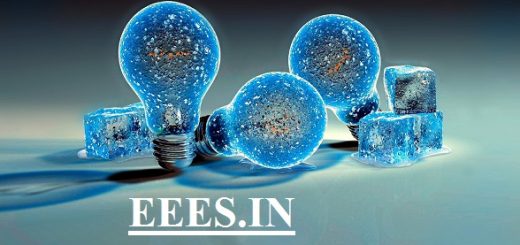Insulators used in Underground Cables
Insulators used in Underground Cables
The commonly used materials for insulation are impregnated paper, VIR, PVC, varnished cambric or rubber mineral compound.
RUBBER:
It is the most commonly used insulating material. Natural rubber is produced from the latex of the rubber tree. Synthetic rubber is produced from alcohol or oil products. It absorbs moisture slightly and is soft. Therefore pure rubber cannot be used as an insulating material.
VULCANIZED INDIA RUBBER (VIR):
It is used for low voltage power distribution systems only. It is prepared by mixing pure rubber with mineral matter such as sulphur, zinc oxide, red lead etc. it has greater mechanical strength than pure rubber. The advantages of using this type of rubber for cable is that, the cable becomes strong and more curable before using VIR as insulation, the copper conductor must be tunnel well because it attacks copper. (Reacts copper) its use is limited because of its low melting point and short span of life.
IMPREGNATED PAPER:
It has low capacitance, high dielectric strength and economical. The paper is manufactured with wood pulp, rags or plant fiber by a suitable chemical process. It has high resistance due to high resistivity center dry condition. It absorbs a small amount of moisture only, which reduced the insulation resistance. For this drawback it requires some sort of protective covering. It is impregnated in insulating oil before used.
POLYVINYL CHLORIDE (PVC):
It is a synthetic compound material. It is obtained from the polymerization of acetylene and is in the form of white power. It is combined chemically with a plastic compound and is used over the conductor as an insulation cover. It has high insulation resistance, good dielectric strength. PVC insulated cables are usually employed for medium and low voltage domestic insulation.
VARNISHED CAMBRIC:-
It is the cotton cloth impregnated and coated with varnish. The cambric is lapped on the conductor in the form of a tape and its surface are coated with petroleum jelly compound to allow for the sliding of one turn over another as the cable is bent.
Characteristics of Insulating Materials used in Underground Cables
- High insulation Resistance.
- High dielectric strength.
- High mechanical strength.
- Non hygroscopic.
- Non inflammable.
- Low cost.
- Non corrosive material.




Recent Comments